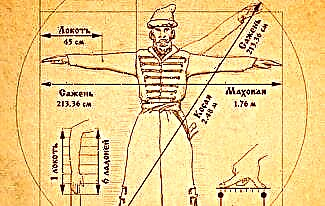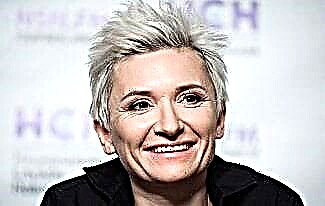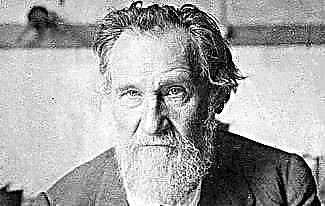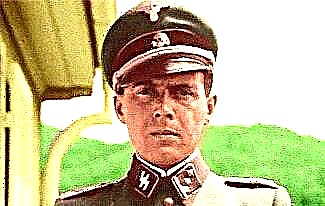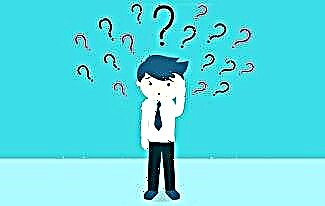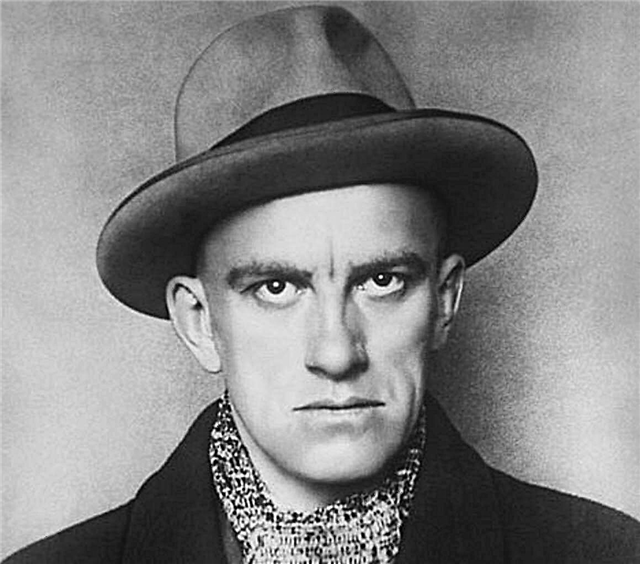Robert James (Bobby) Fisher (1943-2008) - American grandmaster and 11th world chess champion. According to the Šahovski informator, he is the strongest chess player of the 20th century.
At the age of 13 he became the US junior chess champion, at the age of 14 he won the adult championship, at the age of 15 he became the youngest grandmaster of his time and a contender for the world championship.

There are many interesting facts in the biography of Bobby Fischer, which we will tell about in this article.
So, here is a short biography of Robert James Fisher.
Bobby Fischer biography
Bobby Fischer was born on March 9, 1943 in Chicago. His mother, Regina Wender, was a Swiss Jew. The grandmaster's father is officially the Jewish biologist and communist Hans-Gerhard Fischer, who moved to the USSR.
There is a version that Bobby's real father was the Jewish mathematician Paul Nemenyi, who played a big role in raising the boy.
Childhood and youth
After the end of World War II (1939-1945), the mother with her children, Bobby and Joan, settled in the American city of Brooklyn. When the boy was barely 6 years old, his sister taught him to play chess.
Fischer immediately developed a natural gift for this board game, which he continually developed. The child was literally obsessed with chess, and therefore stopped communicating with the guys. He could communicate only with those who knew how to play chess, and there were no such among his peers.
The mother was very frightened by the behavior of her son, who spent all the time at the board. The woman even advertised in the newspaper, trying to find opponents for her son, but no one responded to it.
Bobby Fischer soon joined a chess club. At the age of 10, he took part in his first tournament, having managed to defeat all rivals.
Bobby had a phenomenal memory that helped him study chess theory and come up with his own combinations. He disliked going to school because he declared that nothing was taught there. The teenager said that teachers are stupid and that only men can be teachers.
The only authority in the educational institution for Fischer was the physical education teacher, with whom he periodically played chess.
At the age of 15, he decided to leave school, in connection with which he had a serious scandal with his mother. As a result, my mother left him an apartment and moved to live somewhere else.
As a result, from that moment on, Bobby Fischer began to live alone. He continued to study chess books, only interested in this game.
Chess
When Bobby Fischer was 13 years old, he became the US Junior Chess Champion. A year later, he won the adult championship, becoming the youngest champion in the history of the country.
Bobby soon realized that he needed to keep fit. For this reason, he started playing tennis and swimming, as well as ice skating and skiing. After a resounding victory in the US championship, the American Chess Federation agreed that the young man went to the tournament in Yugoslavia.
Here Fischer took 5-6 places in the standings, which allowed him to fulfill the GM norm. It is curious that in this way he became the youngest grandmaster in the history of chess - 15.5 years.
Among Soviet chess players, Bobby Fischer most often played with Tigran Petrosyan. In total, they played 27 games among themselves. And although Petrosyan won the first game, the Soviet athlete openly declared the undeniable talent of the American prodigy.

In 1959, the young man played for the first time at the World Chess Championship in Yugoslavia, but his game turned out to be rather weak. However, the setbacks only provoked Bobby. He began to prepare even more seriously for the games and soon won a number of brilliant victories in international competitions.
During the biography of 1960-1962. Fischer became the winner of international tournaments 4 times, becoming the best at the Chess Olympiad in Leipzig, and also won a lot of games in team competitions.
In 1962, Bobby failed in the next World Championship Candidates Tournament - 4th place. Returning to his homeland, he publicly accused Soviet chess players of allegedly playing agreed parties among themselves, trying to prevent foreign applicants from reaching first place.
Fischer also added that he would not participate in major competitions until the moment when FIDE legalizes the system of the game - elimination. In protest, for the next 3 years, he did not participate in international tournaments. Later, the athlete agreed that he himself was largely to blame for his defeats.
In the second half of the 60s, Bobby reached great heights in chess, becoming one of the strongest players in the world. He won prizes at major championships. At the same time, many people remember him not only as a brilliant athlete, but also as a brawler.
On the eve of a particular game, Fischer could demand that the game be rescheduled for another day. Or the guy agreed to start the game not earlier than 4:00 pm just because he was used to waking up late. Also, the organizers had to book only deluxe rooms in hotels.

Before the start of the fight, Bobby checked how well the board was lit. He put his pencil upright on it and then looked at the table. If he noticed a shadow, the chess player talked about insufficient lighting. As a rule, he was late for all competitions, which his opponents were used to.
And yet, thanks to his "whims" it was possible to significantly improve the quality of the competition. Moreover, the winners began to receive much higher fees. An interesting fact is that once Fischer said: "No matter how much Mohammed Ali asked for his next fight, I will demand more."
One of the most famous games in Fischer's biography was played in 1972. Bobby Fischer and Boris Spassky met for the world title. As always, even before the start of the meeting, the American repeatedly changed his demands, threatening to give up the game if his wishes were not met.
For the first time in the history of chess, at the request of Fischer, the prize money amounted to a record $ 250,000. As a result, the American was able to defeat a Soviet athlete and become a national hero in his homeland. Upon arrival in the United States, President Richard Nixon wanted to meet with him, but the chess player refused to meet.

Many world celebrities sought friendship with him, but Bobby preferred to communicate only with the closest people. He was invited to various programs and events, literally following on his heels. This led to the fact that the man set a fee for any participation in any events:
- for reading the letter - $ 1000;
- for talking on the phone - $ 2500;
- for a personal meeting - $ 5000;
- for an interview - $ 25,000.
Fischer soon stopped appearing in public, complaining of excessive fatigue. In 1975, he again shocked the world community. The chess player refused to participate in the world championship, as a result of which the victory went to Anatoly Karpov.
According to the most reliable version, the American refused because the organizers did not agree to fulfill his requirements regarding the conduct of the fight. Such disrespect caught Fischer, after which he promised to never play chess again.
The man did not change his decision until 1992. In a commercial rematch with Boris Spassky, to which Bobby unexpectedly agreed, the US authorities considered a violation of the international embargo. The athlete was threatened with 10 years in prison, but he still came to the match.
After defeating Spassky, Fischer found himself in a difficult position. Now he could not return to America, which is why he flew to Hungary, and from there to the Philippines. Later he settled in Japan for a long time.
Bobby Fischer has often criticized US policy, which was allegedly completely in the hands of the Jews. He was a pronounced anti-Semite, who repeatedly accused Jews of various crimes. In late 2003, the US government revoked his citizenship. The last straw for the Americans was the approval by the chess player of the actions of al-Qaeda and the September 11 attacks.
After that, Iceland agreed to accept the refugee. Here Bobby still called America and the Jews evil. He also spoke negatively about Soviet chess players. Especially Garry Kasparov and Anatoly Karpov got it. Fischer called Kasparov a criminal, claiming that the 1984-1985 fights. were falsified by the Soviet special services.
Personal life
In 1990, a Hungarian chess player, Petra Rajchani, wrote a letter to her idol, which was read by Fischer only a year later. This led to the fact that the girl moved to him in the United States. Young people met for 2 years, after which they decided to leave.
Raichani could no longer tolerate the eccentric behavior of a loved one. After that, Bobby had no serious relationship with anyone for about 10 years. After moving to Japan, he met a local chess player named Mieko Watai. The girl remained close to the man, even despite his psychological problems.

Watai also calmly reacted to rumors that Bobby had an illegitimate daughter in the Philippines, who was born after intimacy with Marilyn Young. It is curious that the DNA examination done after the death of the chess player did not confirm Fischer's paternity.
The lovers got married in 2004 in prison, where Bobby ended up after trying to leave the state with forged documents. By the way, he spent 8 months behind bars.
Death
Bobby Fischer died on January 17, 2008 at the age of 64. The reason for the death of the brilliant athlete was renal failure. Doctors repeatedly offered the man to undergo surgery, but he always refused them.
Photo by Bobby Fischer











